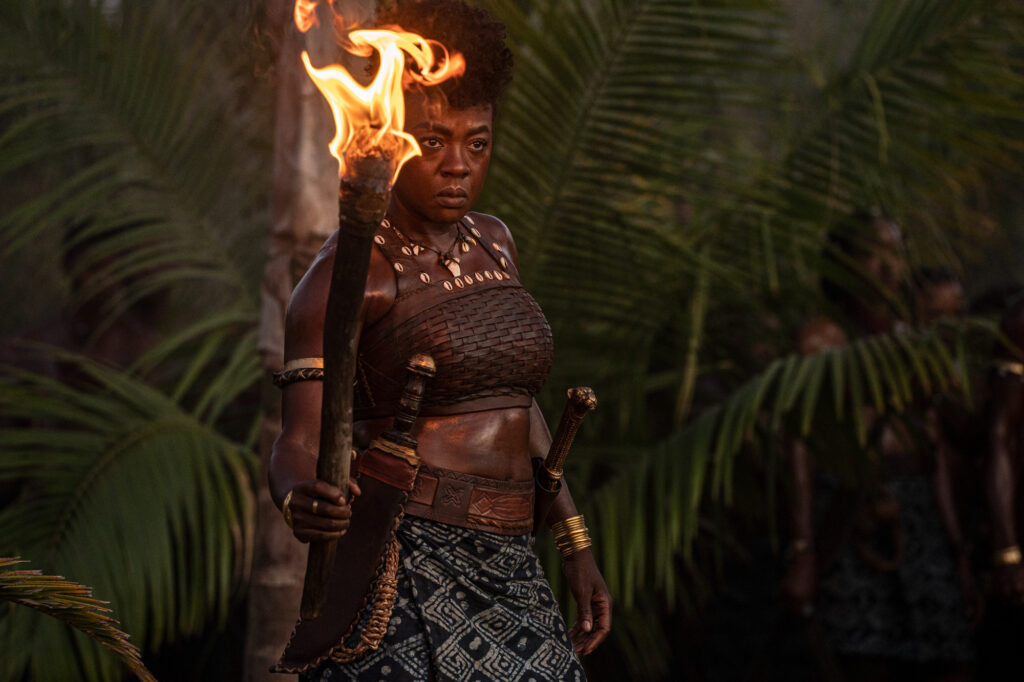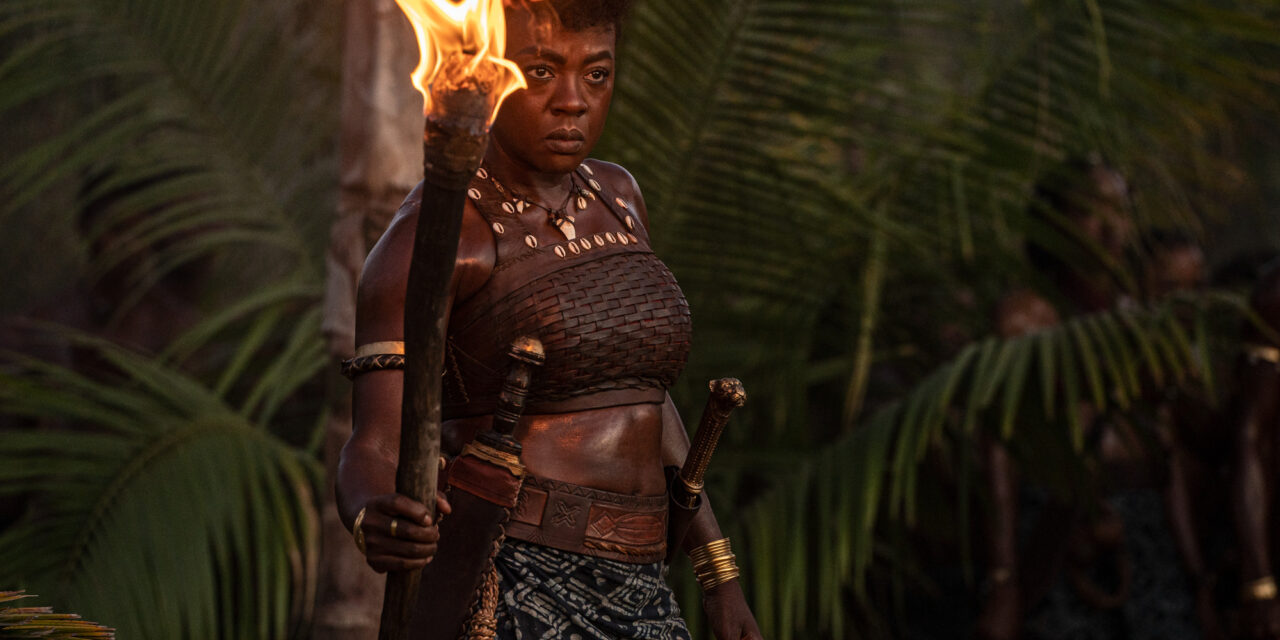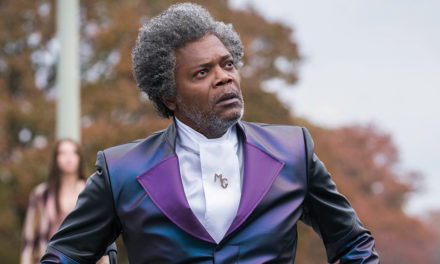With over 500 Hollywood films released on average annually, a few film enthusiasts are always going to feel unsatisfied when the Oscars nominations are released. However, this year’s list, released on Jan. 24, presented shortcomings that are impossible to ignore, highlighting the show’s history of excluding Black actors and filmmakers.

Courtesy of Sony Pictures Publicity
Fans watched with dismay as crowd-favorites like actresses Viola Davis (“The Woman King”) and Danielle Deadwyler (“Till”), directors Gina Prince-Bythewood (“The Woman King”), Chinonye Chukwu (“Till”) and Jordan Peele (“Nope”) were left out of the running in the list. These films were not only snubbed in the acting and directorial categories, but the ceremony altogether. Despite being considered shoe-ins for the awards by critics, none received a single Oscar nomination. This is by no means a consequence of the films’ overall success; “The Woman King” and “Nope” each earned upwards of $94 million in the box office and “Till” received over 97% approval ratings from critics and audience members alike.
These spurns, while disappointing on the surface level, allude to the Academy’s long history of failing to recognize the work of people of color (POC). In the 95-year history of the Academy Awards, this is the 83rd time the organization has failed to nominate a Black actress for lead performances, and the 74th for Black actors. Only one Black actress has ever won the award: Halle Berry in 2002 for her role in “Monster’s Ball.” No Black filmmaker has ever won best director, and no Black woman has ever been nominated for the award.
The inclusion that does appear within the ceremony’s top awards is heavily limited. “Everything Everywhere All at Once” stands as the primary source of representation within the limited diversity of the ceremony’s top awards, dominating the overall list with a staggering 11 nominations. One of its directors, Daniel Kwan, was the only non-white nominee in his category. Similarly, the film’s lead actress, Michelle Yeoh, was the sole POC in the best actress and actor categories.
Outraged, fans were quick to resurface the #OscarsSoWhite hashtag, a Twitter topic that amassed popularity during the 2015 and 2016 Academy Awards.
“So neither The Woman King nor Till received a single Oscar nomination? But Banshee of Inisherin is up for *nine?*,” one Twitter user said. “We still doing #OscarsSoWhite huh?”
The hashtag was created by diversity and inclusion advocate April Reign after the 2015 nomination list had all white acting candidates. The movement has since sparked demand for greater inclusivity within the awards show for filmmakers and performers of color.
Thankfully, more representation can be found in the nominees for the best supporting roles, including Angela Bassett for “Black Panther,” Ke Huy Quan and Stephanie Hsu for “Everything Everywhere All At Once,” Hong Chau for “The Whale” and Brian Tyree Henry for “Causeway.” Even so, the exclusion of POC from the Oscars’ leading categories cannot be ignored.
Those snubbed by the Academy have spoken out. In a guest column for the Hollywood Reporter, “The Woman King” director Gina Prince-Bythewood expressed her disappointment in both the Academy, but also at how the Academy’s decision has been reported as a “snub.”
“ It’s not a snub,” Prince-Blythewood wrote in the piece. “It’s a reflection of where the Academy stands and the consistent chasm between Black excellence and recognition.”
Prince-Bythewood argued that this is not about a failure to campaign or amass support, but an issue within the system .
Her statement ended with a call for change, and a reminder that the dismissal of POC is more than just an issue within the film world — it is a systemic American problem.
Viola Davis reposted this response on her Instagram, standing in solidarity with the director and “all artists of color who continue to work, create, thrive despite [their] environment.”
These words fell on a large audience following the actress’ achievement of EGOT — or Emmy, Grammy, Oscar, and Tony — status. Davis received the Grammy for best audiobook, narration and storytelling recording on Feb. 5 for her memoir, “Finding Me.” This designation makes her the third Black woman in history to accomplish such a feat alongside legends Jennifer Hudson and Whoopi Goldberg. Despite the Oscars’ failure to give her credit, Davis’ other successes stand as an inspiration to all POC in the industry, and represent an act of resistance against a system determined to keep their voices silenced.
Chinonye Chukwu, the director of “Till,” shared similar views on her own Instagram, condemning Hollywood for its obsession with “upholding whiteness” and “perpetuating an unabashed misogyny towards Black women.” In this message, she reminded her followers that the lack of recognition by the Academy is in no means indicative of the success of herself or any others who worked on the film, and that this is by no means a setback for her.
“I will always have the power to cultivate my own joy, and it is this joy that will continue to be one of my greatest forms of resistance,” Chukwu wrote on her Instagram.
By choosing to focus their success, strength and solidarity, these actresses and filmmakers have conquered the Academy’s attempt to devalue their work and those who work alongside them. Regardless of who the winners will be on March 12, POC artists continue to celebrate individual success in their own way, working to uplift what people claim a nominee list has suppressed. Their words are an inspiration and important reminder that, though inclusion in the film industry has come far, it still has a long, long way to go.
Erin Devine is a junior at Emory College of Arts and Sciences majoring in Film & Media Studies and English & Creative Writing. Outside of writing for the wheel, she serves as the social media manager for the Emory University Club Fencing team as well as secretary for the student theatre group Dooley's Players, and works various jobs on student film productions. In her free time, she loves to create stories, read novels, act in plays, and dance ballet!







